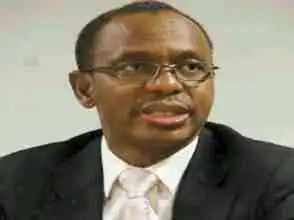
The governor of Kaduna State, Malam Nasir El-Rufai, yesterday stated a judicial commission of inquiry is to be established into the recent showdown between the Nigeria Army and members of the Islamic Movement of Nigeria, otherwise known as Shi’ite in Zaria.
Governor El-Rufai, who disclosed this in a state broadcast, stated the commission of inquiry is to be set up under the Tribunals of Inquiry Act, and will examine the immediate and remote causes of the Zaria incident, and assemble a factual and authoritative account that the government can study and act upon.
The governor stated that the composition and terms of reference of the commission of inquiry will be announced within two weeks.
He assured the people of the state that the government is committed to securing the state and upholding the rights of every citizen.
Malam el-Rufai provided an update on the Zaria clash and the events that preceded what he described as a tragic and sad event.
“There have been tragic consequences and needless loss of lives, and we extend our condolences to the families that have been affected.” El-Rufai disclosed. In his sombre moment, the government has directed that steps be taken to address the humanitarian fallouts of the security operations.”
The governor stressed that “everybody has a fundamental right to their faiths and beliefs, but no one has any right to practise their faith in ways that diminish, distress or inconvenience others.”
He therefore announced that “henceforth, no person or group, under any guise will be allowed to block any road, obstruct public highways, occupy public facilities or inconvenience citizens in Kaduna State.”
“Anybody that needs to march may do so, but they cannot take over public facilities or disrupt social services and commercial activities in Kaduna State, and any march or procession can be undertaken only with the prior knowledge of, and protection of the police to prevent the breakdown of law and order,” he stated.
Enumerating what the government had learnt from security reports regarding the events in Zaria, the governor highlighted the facts that are known, as well as complaints and allegations that have been made.
The governor added that he will not tolerate any escalation of lawlessness, and insisted that “the government continues to invest heavily in security as a foundation for the successful execution of our economic and social agenda to develop Kaduna State.”
Noting that Kaduna State has endured too many upheavals in its recent history, the governor asked for a collective stance for peace.
“We all should jointly say no to actions that divide people, reject conduct that ignores or violates the legal and constitutional rights of others and oppose practices that contest the prerogatives of state institutions to safeguard and protect every citizen.”
The governor reassured citizens that they can go about their normal activities, but he urged vigilance and prompt reporting of any suspicious activity.
He concluded the broadcast with a plea for peace, saying “let us all redouble our commitment to sustaining the peace, and to uphold each other in our God-given humanity.”
Shiites: SERAP seeks UN investigation
A non-governmental organization, Socio-Economic Rights and Accountability Project (SERAP), has sent an urgent appeal to Mr. Christof Heyns, UN Special Rapporteur on Extrajudicial, Summary or Arbitrary Executions, requesting him to “use your good offices and position to urgently investigate allegations of attack by the Nigerian military on a Shia Muslim group in Zaria, Kaduna State, and the alleged killing of numerous people after a military convoy got stuck by a march.”
The urgent appeal, dated December 17, 2015, and signed by SERAP’s executive director, Adetokunbo Mumuni, reads in part: “SERAP is seriously concerned that the allegations of extrajudicial executions by the Nigerian military amount to serious violations of the right to life, guaranteed under article 6 of the International Covet on Civil and Political Rights to which Nigeria is a state party.
SERAP therefore asked the Special Rapporteur to investigate the allegations and/or ask the Nigerian government to thoroughly investigate the allegations and bring to justice anyone suspected to be responsible.
It should also ask the Nigerian government to establish effective accountability mechanisms for human rights violations by its soldiers.
As stated by the rights group, “The right to life is so fundamental because, without it, all other rights would be devoid of meaning. The right to life ensures that every person has a right to be free from the arbitrary deprivation of life and places certain limitations on the use of force, including by the Nigerian military.
“SERAP is concerned that the attack by the Nigerian military may amount to disproportionate and excessive use of force and not militarily necessary in the fight against Boko Haram. The Nigerian military should have done everything feasible to prevent the killings. ‘Everything feasible’ means precautions that are ‘practicable or practically possible taking into account all circumstances ruling at the time, including humanitarian and military considerations.’”
The NGO further noted that as it is one of the state’s central duties to protect life, it is a particularly serious breach of this duty when its own agents violate this right, leaving little hope that it will be effective in preventing violations by others.